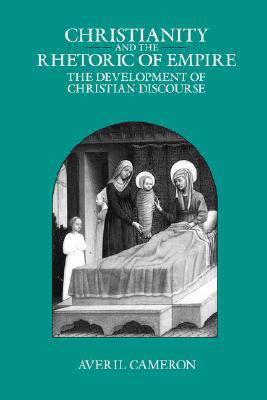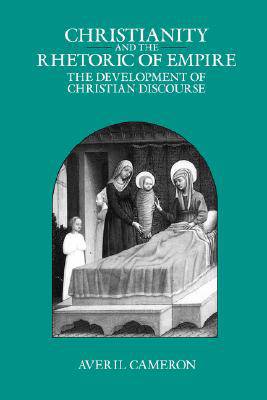
- Afhalen na 1 uur in een winkel met voorraad
- Gratis thuislevering in België vanaf € 30
- Ruim aanbod met 7 miljoen producten
- Afhalen na 1 uur in een winkel met voorraad
- Gratis thuislevering in België vanaf € 30
- Ruim aanbod met 7 miljoen producten
Zoeken
€ 57,95
+ 115 punten
Omschrijving
Many reasons can be given for the rise of Christianity in late antiquity and its flourishing in the medieval world. In asking how Christianity succeeded in becoming the dominant ideology in the unpromising circumstances of the Roman Empire, Averil Cameron turns to the development of Christian discourse over the first to sixth centuries A.D., investigating the discourse's essential characteristics, its effects on existing forms of communication, and its eventual preeminence. Scholars of late antiquity and general readers interested in this crucial historical period will be intrigued by her exploration of these influential changes in modes of communication.
The emphasis that Christians placed on language-writing, talking, and preaching-made possible the formation of a powerful and indeed a totalizing discourse, argues the author. Christian discourse was sufficiently flexible to be used as a public and political instrument, yet at the same time to be used to express private feelings and emotion. Embracing the two opposing poles of logic and mystery, it contributed powerfully to the gradual acceptance of Christianity and the faith's transformation from the enthusiasm of a small sect to an institutionalized world religion.
The emphasis that Christians placed on language-writing, talking, and preaching-made possible the formation of a powerful and indeed a totalizing discourse, argues the author. Christian discourse was sufficiently flexible to be used as a public and political instrument, yet at the same time to be used to express private feelings and emotion. Embracing the two opposing poles of logic and mystery, it contributed powerfully to the gradual acceptance of Christianity and the faith's transformation from the enthusiasm of a small sect to an institutionalized world religion.
Specificaties
Betrokkenen
- Auteur(s):
- Uitgeverij:
Inhoud
- Aantal bladzijden:
- 275
- Taal:
- Engels
- Reeks:
- Reeksnummer:
- nr. 55
Eigenschappen
- Productcode (EAN):
- 9780520089235
- Verschijningsdatum:
- 2/12/1994
- Uitvoering:
- Paperback
- Formaat:
- Trade paperback (VS)
- Afmetingen:
- 165 mm x 228 mm
- Gewicht:
- 426 g

Alleen bij Standaard Boekhandel
+ 115 punten op je klantenkaart van Standaard Boekhandel
Beoordelingen
We publiceren alleen reviews die voldoen aan de voorwaarden voor reviews. Bekijk onze voorwaarden voor reviews.











